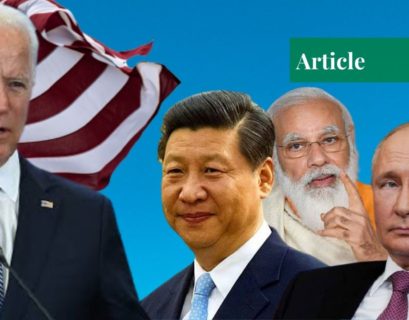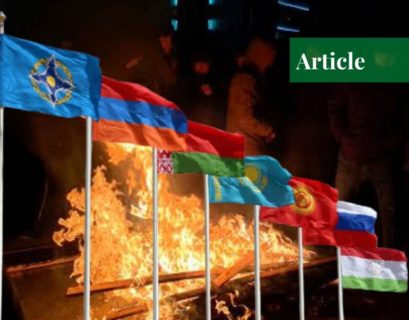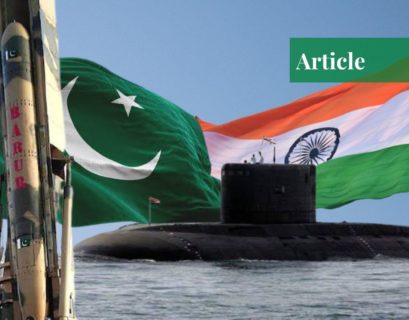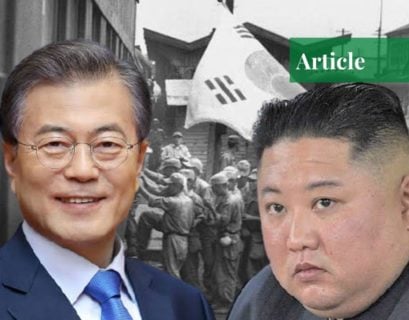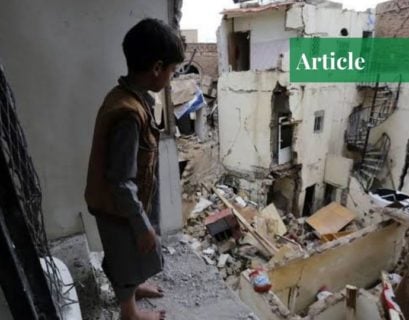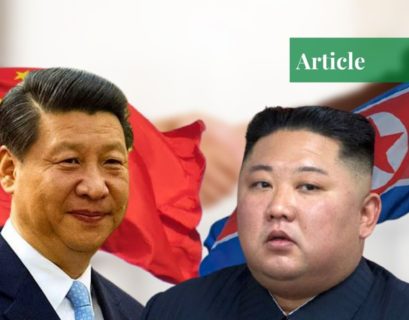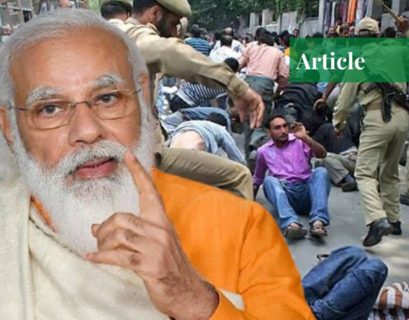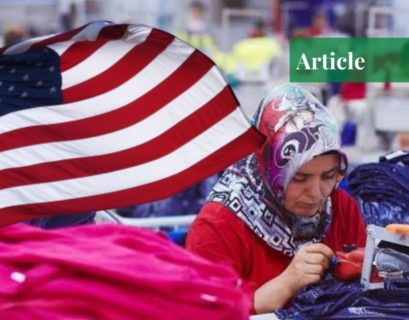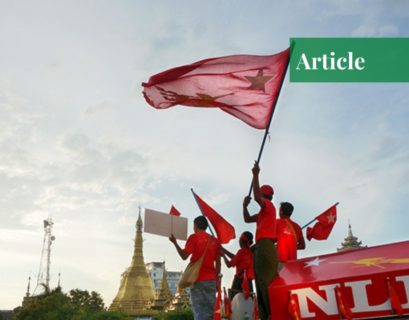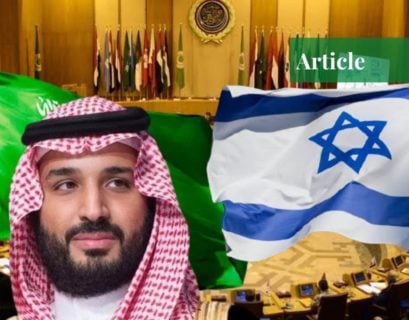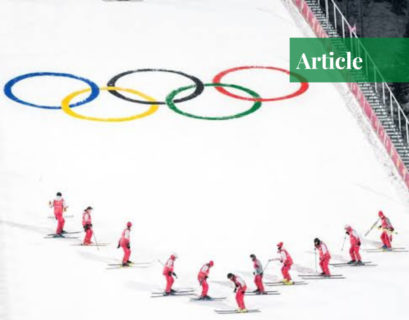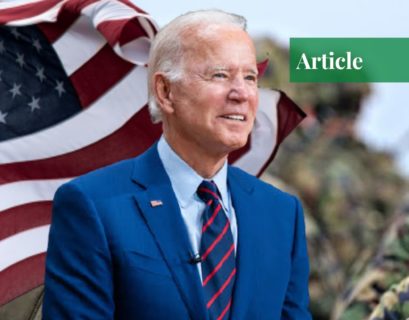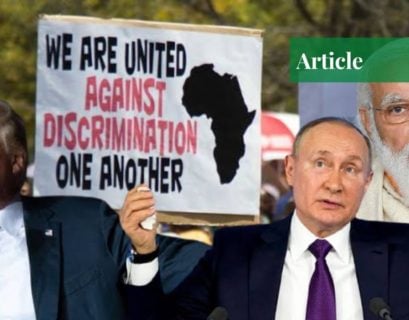A Tug of War Between America and the Rising Powers
A unipolar world is transitioning into that of a multipolar, stirring the debate on the decline of the US once again. China, India, and Russia — the major contenders — are challenging the US’s sole authority. The author, Ali Raza Jalbani, follows the debates closely and shares what he’s noticed about the shifting — or sharing — of power in the global arena.
The Collective Security Treaty Organization’s (CSTO) Mission Kazakhstan and a Lesson for OIC
When protests became unmanageable in Kazakhstan, the Collective Security Treaty Organization (CSTO), a military alliance of post-soviet states, rushed to the scene and quelled the unrest. The author, Mirwaise Khan, finds the CSTO’s cohesive structure admirable and thus recommends that the OIC take a page out of the former’s book.
Analyzing Pakistan’s Second Strike Capability: Pakistan’s Babur 3 vs India’s INS Arihant
The nuclear arms race between India and Pakistan has led to both states attaining a second strike capability. To be capable of a second strike, India has developed a nuclear-powered submarine equipped with ballistic missiles (SSBN) – the INS Arihant. In response, Pakistan introduced the Babur 3 missile, which is a submarine-launched cruise missile, and declared its second strike capability. While analyzing the credibility of the second strikes of India and Pakistan, the author, Rauf Khalid, notes that there is an asymmetry between them.
An End in the Korean War: A True Possibility or a Pipe Dream?
Though the Korean War concluded with the 1953 armistice, there has been no formal declaration of an end to the war in the last 70 years. As such, both North and South Korea are still, technically, at war. The author, Hammad Khan, notes that the current South Korean president, Moon Jae-in, has been quite resilient in his approach to officially end this war. While the parties involved in the conflict – North and South Korea, the US, and China – have agreed in principle to end it, the US has some reservations which have made it reluctant to accept a peace agreement.
The War in Yemen: How It Began & Who Are the Houthis?
The war in Yemen – a conflict between the Houthis and the Hadi regime, involving several international actors – has turned the state into the largest humanitarian crisis of the contemporary era. Around 80% of the Yemeni population is in need of humanitarian assistance. To understand how Yemen came to this point, the author, Saira Javaid Cheema, provides a background of the war in Yemen and explains who the Houthis are. She argues that since Saudi Arabia’s King Salman took the throne in 2015, the civil war in Yemen has worsened.
The Mercurial Relationship Between China and North Korea
Many take the Sino-North Korean friendship as an established fact, but there are more undertones to this alliance than meets the eye. Infamously dubbed as the ‘Lips and Teeth’ alliance, the People’s Republic of China and the Democratic People’s Republic of Korea had a cautious beginning — and now an uncertain future.
From Persecution to Open Calls for Muslim Genocide in India
Is India’s democracy buckling under the weight of its endless anti-Muslim hate speech? Gandhi really did not wish for his beloved state to become what it is now — a secular state that inspires antipathy to its Muslim citizens. Hindutva or Hindu nationalism has recently sparked calls for Muslim genocide, distancing the notion of democracy in India.
The Enactment of the Uyghur Forced Labor Prevention Act by the US
Signed into law on 23rd December 2021, the Uyghur Forced Labor Prevention Act will prevent US businesses and consumers from becoming complicit in human rights violations. The Act will radically reorient the US’s foreign policy with China, as it will presume that goods made wholly or in part in the Xinjiang region are a result of forced labor and hence the onus to disprove that presumption will be on the importer.
Myanmar’s Shadow Government: In the Name of Democracy
Composed of the opposition, the shadow government provides feedback and criticism on the policies supported by the ruling party. Myanmar has witnessed completely distinct shadow governments—from the military junta to the NLD—throughout its history. Even now, there is a shadow government; the National Unity Government is one that is displaying its resistance to the military rule of the country.
Will Saudi Arabia and Israel Normalize Relations?: Understanding the Arab Peace Initiative
On the condition that Israel will implement the 2002 Arab Peace Initiative, Saudi Arabia has expressed its willingness to improve its relations with Israel. The initiative proposes a two-state solution for the Palestine issue and an end to the Israeli illegal annexation of the territories of the West Bank and Gaza Strip. The author, Muhammad Hamza Tanvir, notes that although an alliance between the Kingdom of Saudi Arabia and Israel would be beneficial for them, the condition imposed by the kingdom is not pragmatic for Israel, even more so after the change in its leadership.
The Gruesome Assassination of Jamal Khashoggi
In 2018, the world witnessed the assassination of Jamal Khashoggi – a Saudi-born Washington Post columnist known for his criticism of Saudi Arabia’s Crown Prince Mohammad Bin Salman – in the Saudi consulate in Turkey. The author, Palwasha Khan, explains that Saudi Arabia had used an assassination squad to eliminate Khashoggi. Though Saudi Arabia denied its involvement in the murder, America’s Central Intelligence Agency (CIA) affirmed that the journalist was killed on the crown prince’s orders. Moreover, the death of Khashoggi sparked a diplomatic crisis between Saudi Arabia and several of its closest allies, including the US.
The Diplomatic Boycott of the 2022 Beijing Olympics
February is nearing and so are the 2022 Beijing Olympics. The US’s boycott of the Games has motivated many states – Australia, Canada, and the UK to name a few – to follow suit. China hasn’t taken kindly to these political ploys and in fact has warned countries of the price that they will pay for boycotting the 2022 Winter Olympics in Beijing.
Nine Famous Straits of the World: Exploring Trade Routes
This article describes some of the most important straits of the world. Straits are narrow stretches of water that serve as significant strategic and trade routes. As almost 80 percent of the world’s trade is carried over the waves, these straits provide navigable routes to various ships thus playing a critical role in the trade of the world.
The Hypocrisy of Democracy in America: From Military Interventions to the Recent Summit
Though America considers itself the true representative of democracy, its actions prove otherwise. The hypocritical nature of the United States is apparent from its propensity to get militarily involved in other states, like Afghanistan, Syria, and Iraq, in the name of promoting democracy. The authors argue that contrary to establishing a democratic regime, the US military interventions have worsened the instability in these states. Moreover, the US itself is a dysfunctional democracy and even the Summit for Democracy can be seen as an effort to divide the world and preserve the US hegemony.
Pakistan’s Debt & the $3 Billion Saudi Loan
The Kingdom of Saudi Arabia has granted a loan of $3 billion to Pakistan. The state is obligated to return the loan after a year, however, Saudi Arabia can ask for repayment on a three-day notice anytime within that one year. In addition, Pakistan will have to pay $120 million in interest on the loan and Saudi law would be applicable in case of any dispute. The author, Muhammad Hamza Tanvir, explains that since the IMF has restricted Pakistan from borrowing from the State Bank of Pakistan, the economic condition of Pakistan is likely to take a toll. At such a crucial time, Pakistan cannot afford to offend any of its allies, namely China.
Nationalism in International Relations: Tracing the Roots of Xenophobia
Nationalism captures the important yet equally detrimental—if manifested unwisely—unity that is triggered from the loyalty and dedication towards one’s homeland. To the author, Mahrukh Khalid Siddiqui, xenophobia and discrimination are viewed as the by-products of classical nationalism. Discriminatory actions are fueled by presumptions, prejudice, lack of knowledge, and stereotypes.
Pakistan-Turkey Relations: A Harmonious Partnership
After Pakistan became an independent state in 1947, Turkey was one of the first states to recognize it. The two states are bound together by cultural and religious links. The author, Muhammad Abdullah, notes that throughout the years, they’ve cooperated and shown support for each other on several fronts. When Pakistan was hit with a devastating earthquake in 2005, Turkey sent millions of dollars in aid to Pakistan. Similarly, after the Van earthquake of 2011, Pakistan’s Red Crescent Aid Society donated $100,000 to the people of the Van province in eastern Turkey.
